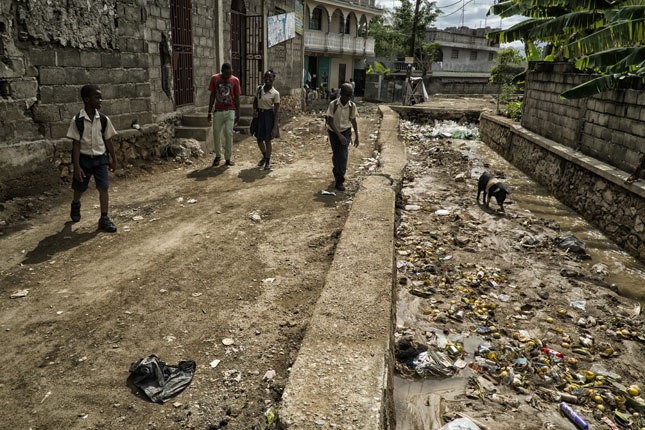-
The Lancet Commission’s Latest Findings on Climate Change, Health, and Policy Responses
July 1, 2015 By Francesca Cameron
“Tackling climate change could be the greatest global health opportunity of the 21st century,” asserts the newest report by the Lancet Commission on Health and Climate Change.
The 2015 edition builds off the commission’s 2009 report linking the effects of climate change to human health. Going a step further, the commission, a multidisciplinary and international collaboration between academic centers around the world, proposes policy responses for increased collaboration across sectors and levels of governance on mitigating and adapting to climate change. In particular, they call on governments to view climate change through a public health lens and provide recommendations on how to augment the voices of health professionals in the policy discussion.
Climate Change Effects on Human Health
Climate change exacerbates both direct and indirect threats to human health.Climate change exacerbates both direct and indirect threats to human health. Direct threats include increased prevalence of extreme weather such as storms, droughts, floods, and heatwaves. These direct threats correlate with indirect threats such as food insecurity, air pollution, water pollution, land use change, and ecological change.
Unsustainable development catalyzes a positive feedback loop that destabilizes the environment, contributes to climate change, deteriorates human health, and limits future development, the commission writes. Conversely, development that promotes the health of humans and the environment together mitigates and better responds to climate change and health issues, thus allowing continued economic growth and gains in wellbeing.
A Comprehensive, Collaborative Approach
Nowadays, it can seem that the voices of international development blend into a chorus of buzzwords calling for action that is “integrated,” “comprehensive,” “collaborative,” and “dynamic.” In the context of climate change and health, what do policies that embody these characteristics look like? The report touches on this question of implementation and recommends governments, public health professionals, climate change experts, urban planners, and economists work together to:
- Address climate change and health simultaneously through investments in research and climate resilient health systems;
- Transition to cities that are designed with the health of individuals and the environment it mind;
- Decarbonize the global economy by phasing out fossil fuel dependence and increasing access to renewable energy alternatives; and
- Increase collaborative opportunities between health professionals and governments.
A common theme in the report is the necessity for an all-hands-on-deck approach across government sectors. “A siloed approach to protecting human health from climate change will not work,” writes the commission. “This must acknowledge and seek to address the extent to which additional global environmental changes, such as deforestation, biodiversity loss, and ocean acidification, will impact on human health and decrease resilience to climate change.”
Uplifting Girls and Women
While worsening climate change affects the health of all, it is most immediately detrimental to the health of marginalized people in developing countries, according to the commission. The direct and indirect effects of climate change interact with social factors such as gender, age, income level, and existing level of health care to compound health problems already prevalent in marginalized populations. These problems include undernutrition, infectious diseases, respiratory diseases, cardiovascular diseases, allergies, injuries, and poison.
Women and girls often bear the heaviest burden as their low socioeconomic status makes them both the most susceptible to poor health and the least likely to have the resources to address it. When drought (a direct effect of climate change) increases food insecurity (an indirect effect), girls and women are more likely to suffer undernutrition than their male counterparts since social mores often delegate women to the bottom of the food hierarchy, for example.
Such complex challenges require comprehensive solutions. The report suggests policies that support improved infrastructure, training, and weaning low-income countries off fossil fuels to promote better environmental management, economic growth, and gender equity. For example, by investing in agricultural research, human capital, and sustainable farming methods, policymakers can empower communities to mitigate the likelihood of drought, better adapt to drought when it happens, and elevate the economic prospects of girls and women, thus reducing gender inequity and vulnerability.
Policymakers, researchers, and academics across all fields will find the entire 2015 report worth an in-depth read. The complete report is available here.
Sources: The Lancet.
Photo Credit: Haitian children return to school after severe flooding, courtesy of Logan Abassi/UN Photo.
 A Publication of the Stimson Center.
A Publication of the Stimson Center.



